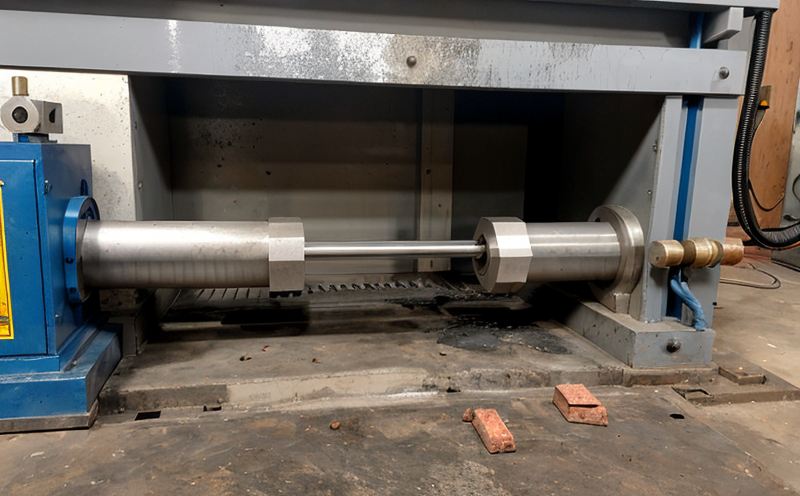ISO 6603-2 Drop-Weight Impact Testing of Plastics
The ISO 6603-2 standard provides a standardized procedure for determining the resistance to dynamic cracking of plastics under impact conditions using drop-weight impact testing. This service is critical in ensuring that plastic materials used in various industries meet safety and performance standards, particularly in applications where mechanical integrity must be maintained under stress.
The test involves dropping a specified weight from a known height onto a sample mounted between two anvils. The specimen breaks at the point of impact, and the energy absorbed during fracture is measured by the drop distance. This service can help identify brittle materials that may fail unexpectedly under dynamic loading conditions, ensuring product safety.
The process begins with careful selection and preparation of test specimens according to ISO 6603-2 requirements. Specimens must be free from defects such as cracks or burrs to ensure accurate testing results. The test setup includes a pendulum capable of delivering the specified impact energy, typically in the range of 50 J to 1000 J depending on the material being tested.
During testing, the specimen is placed between two anvils and struck by the swinging pendulum. The energy absorbed during fracture is measured using a calibrated device that records the drop distance. After each test, the sample is visually inspected for any signs of damage or deformation. If multiple specimens are tested, statistical analysis may be required to determine the material's impact resistance.
The results from this testing can inform design and manufacturing processes by highlighting areas where materials need improvement in terms of toughness and durability. For instance, if a particular plastic shows poor performance during ISO 6603-2 testing, manufacturers might explore new formulations or processing methods to enhance the material's impact resistance.
Understanding the mechanical properties of plastics is crucial for various industries including automotive, aerospace, construction, and consumer goods. By adhering to standards like ISO 6603-2, laboratories ensure that products meet stringent quality control measures, thereby enhancing safety and reliability in end-use applications.
Benefits
- Achieve Regulatory Compliance: Ensure your plastic materials comply with international standards such as ISO 6603-2, which is essential for market access and regulatory approval.
- Enhance Product Safety: By identifying brittle materials prone to unexpected failure under dynamic loading conditions, this testing helps prevent accidents and product recalls.
- Safeguard End-Use Applications: Understanding the impact resistance of plastics ensures they can withstand real-world conditions without compromising on safety or performance.
- Informed Design Decisions: The insights gained from this testing allow for more informed design choices, leading to safer and more reliable products.
Eurolab Advantages
Eurolab is renowned for its expertise in materials testing, particularly in the field of mechanical properties. Our state-of-the-art facilities and experienced technicians ensure accurate and reliable results every time. We use only the most advanced equipment to perform ISO 6603-2 testing, guaranteeing precise measurements and repeatable outcomes.
Our team of professionals is well-versed in interpreting test data, providing comprehensive reports that go beyond mere numbers. We offer tailored recommendations based on our findings, helping you make informed decisions about your materials. Whether you need routine testing or one-off assessments, Eurolab delivers consistent quality and exceptional service.
Our commitment to excellence extends to every aspect of the testing process, from specimen preparation to final report generation. We adhere strictly to ISO 6603-2 guidelines, ensuring that your results are both accurate and comparable with other laboratories worldwide. This level of precision is crucial for maintaining product quality and meeting international standards.
Environmental and Sustainability Contributions
- Reduced Waste: By identifying materials that fail ISO 6603-2 testing, manufacturers can avoid using substandard plastic in products, minimizing waste throughout the supply chain.
- Eco-Friendly Materials Selection: Understanding a material's impact resistance helps in selecting more sustainable alternatives that meet safety and performance requirements without compromising on environmental friendliness.
The use of plastics in various industries has grown rapidly, but it also comes with significant environmental challenges. By ensuring that only high-quality materials pass ISO 6603-2 testing, we contribute to reducing the amount of plastic waste generated and promote the development of more sustainable alternatives.





